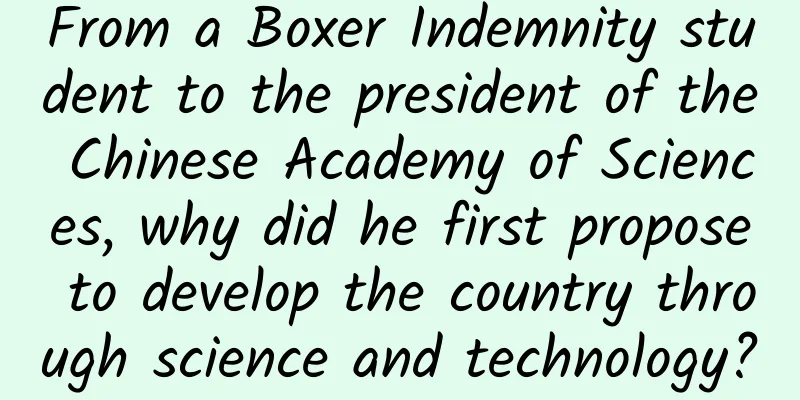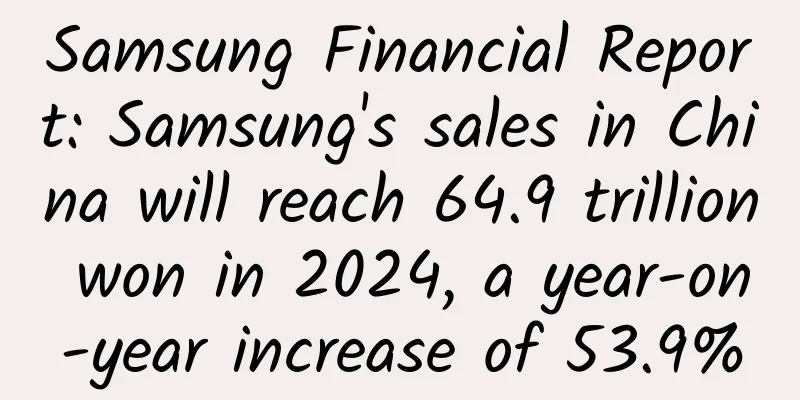From a Boxer Indemnity student to the president of the Chinese Academy of Sciences, why did he first propose to develop the country through science and technology?

|
August 17, 1937 was the fifth day of the Battle of Shanghai. At the Wusongkou Wharf in Shanghai, 24 students who received the fifth Sino-British Boxer Indemnity Scholarship were ready to go on a cruise ship bound for the UK. Looking at the war-torn motherland, they made a vow to return home and serve their motherland after completing their studies. Among them was Lu Jiaxi, who was 22 years old at the time. According to Lu Jiaxi's son Lu Xianchi's recollection: "My father was on the ship when he heard foreigners say that these people were "compensation commissioners" from the countries that lost the war. We gave you some money so that you can study. So my father was very angry. He said that we were like the god who stole fire, bringing back the fire from foreign countries and lighting it in China." In 1939, after receiving his Ph.D. in physical chemistry from the University of London, Lu Jiaxi went to the California Institute of Technology to study structural chemistry under the guidance of Professor Linus Pauling, who later won the Nobel Prize twice. There, he met a group of Chinese students including Qian Xuesen, and formed a deep friendship with them. They agreed to learn both literary and martial arts and serve the Chinese nation. On August 15, 1945, Japan announced its unconditional surrender, and China won the war of resistance against Japanese aggression. According to Lu Xianchi's recollection, his father Lu Jiaxi was very excited. He said: "When I started planning my return trip half a year ago, the war was not over yet. My plan was to go around the Atlantic Ocean and travel halfway around the earth to return home. Now that Japan has collapsed, I can cross the Pacific Ocean from the west coast of the United States to Shanghai and return to my motherland through the 'Qianmen'." Li Hanqiu, former head of the Central Propaganda Department of the China Democratic League, said: "A group of outstanding and accomplished scientists returned, including Qian Xuesen, Qian Weichang, and the experts on nuclear bombs, who changed their names. Mr. Lu came back earlier, as soon as the Anti-Japanese War ended." Before returning to China, Lu Jiaxi had just received an achievement award from the U.S. Defense Research Committee. He refused the generous treatment for research in the United States and returned to Xiamen University and Zhejiang University to become a poor professor with a passion to open up a new era of structural chemistry in China. However, the Kuomintang provoked a civil war, leaving Lu Jiaxi with nowhere to put a peaceful desk, which made him feel desperate. "My father was extremely disappointed with the Kuomintang, from hope to disappointment and finally despair. My father tried every possible means and with the help of his friends, he obtained some industrial products that could not be considered chemical drugs, and reprocessed and purified them (for experiments). He said, I believe this sentence: 'The darkest time is before dawn, and our only hope now is that dawn will come sooner.'" Lu Xianchi said. On October 17, 1949, the entire island of Xiamen was liberated. On the 20th, when Lin Yixin, then the first secretary of the Xiamen Municipal Party Committee, talked with Lu Jiaxi, he mentioned when Xiamen University would be able to resume classes. Lu Xianchi said: "My father was very moved. He was so concerned about education and universities just a few days after liberation, and he was willing to follow the Communist Party." In the early days of liberation, there was a lot of work to be done. Lu Jiaxi realized that if the country wanted to develop economic construction, science and technology would also develop rapidly. In early 1953, Lu Jiaxi joined the Chinese Peasants and Workers Democratic Party, which was mainly composed of middle and senior intellectuals. That year, China began its first five-year plan. Li Hanqiu said, "After liberation, he (Lu Jiaxi) was particularly happy. In the People's Republic of China led by the Communist Party of China, he was able to truly contribute his learning to the construction, science and education of the motherland. After joining the Peasants and Workers Party, he gradually moved from education and science and technology to the political stage of multi-party cooperation." As one of the few structural chemists in China, Lu Jiaxi was tasked with setting up the Fujian Institute of Research on the Structure of Matter of the Chinese Academy of Sciences. He led a group of young people, and through the process of building it from scratch and from small to large, he finally built China's first comprehensive research institution focusing on structural chemistry. In 1975, Lu Jiaxi led a delegation to visit the United States and was received with high standards. After returning to China, he told Qian Xuesen who came to congratulate him that under the leadership of the Communist Party of China, the Chinese people finally stood up straight in front of Westerners. "If our country wants to truly and completely change its appearance, we must rely on science and technology. So he said that we must do our best to plant more five-star red flags in the world's technological arena," Lu Xianchi recalled. In March 1978, the National Science Conference was held in Beijing, and the east wind of "reform and opening up" was approaching. In his speech, Deng Xiaoping pointed out that correctly understanding science and technology as productive forces and correctly understanding that mental workers serving socialism are part of the working people are closely related to the development of China's scientific cause. According to Lu Xianchi's recollection, the central government had more considerations for my country's entire scientific undertaking, and Deng Xiaoping proposed that the president of the Academy of Sciences should be scientists themselves. In 1981, Lu Jiaxi became the president of the Chinese Academy of Sciences. In 1983, he accompanied Comrade Deng Xiaoping to meet with Dr. Tsung-Dao Lee, an American physicist and Nobel Prize winner. They discussed the establishment of China's first large scientific facility, the Beijing Electron-Positron Collider, and the establishment of a doctoral research mobile station. Chen Hesheng, an academician of the Chinese Academy of Sciences, recalled: "I think this meeting was a very important discussion between Comrade Xiaoping and Tsung-Dao Lee after the central government decided to promote the Beijing Electron-Positron Collider project. President Lu Jiaxi of the Chinese Academy of Sciences attached great importance to it, which enabled this work to move forward quickly." "Comrade Deng Xiaoping came to inspect the Beijing Electron-Positron Collider after it was completed in 1988. He mentioned that the then director-general of the European Organization for Nuclear Research asked him, high-energy physics is only done by developed countries. China is still very poor, so why do you want to do high-energy physics? Comrade Xiaoping replied, 'We do high-energy physics with an eye on the future, on the development of Chinese science and technology, and to make China's high-tech occupy a place in the world.' The collider was built in 1988, and it has been more than 30 years now. It has always been at the forefront of international research in this field." Chen Hesheng introduced. On October 7, 1984, Deng Xiaoping personally came to the Institute of High Energy Physics to shovel the ground for the foundation stone of the Beijing Electron-Positron Collider. "It should be said that it was Comrade Deng Xiaoping who supported it and my father actively participated in it. My father felt that Comrade Deng Xiaoping was very courageous in this matter," said Lu Xianchi. In 1988, Lu Jiaxi was elected Chairman of the Central Committee of the China Democratic League, and subsequently proposed "revitalizing the country through science and technology" at the Fourth Session of the Seventh National Committee of the Chinese People's Political Consultative Conference. From "saving the country through science" to "developing the country through science and technology", science and education are not only the two major pillars in Lu Jiaxi's life, but also confirm the sincere intention of the Peasants and Workers Party members to contribute to the modernization of the motherland. Gong Jianming, vice chairman of the Central Committee of the China Democratic League, recalled: "The 1980s was a process of catching up and releasing because we had been suppressed for too long. Now we are proposing that, on the basis of certain scientific and technological progress, we need to take it to the next level, improve our science and technology, and occupy the commanding heights." "We have always been committed to developing middle- and senior-level intellectuals in the fields of science and technology and education. We have more than 180,000 party members. This group of people are full of enthusiasm and love the motherland. They always firmly support the leadership of the Communist Party and put forward some reasonable suggestions around the country's development strategy." Gong Jianming said. "China's science and technology has made great progress, and science and technology have developed very rapidly. Only when we can achieve a high level of self-reliance in science and technology can we talk about the true great rejuvenation of the Chinese nation," said Chen Hesheng. Source: China News Network Original title: "Walking on the Great Road | From a Boxer Indemnity student to the president of the Chinese Academy of Sciences, why did he first propose to develop the country through science and technology? " Picture screenshot from: China News Video Chief Director: Song Zhe Director: Liu Xuanting Videographer: Li Shuoxing, Wang Chao Narrator: Yang Haibo Packaging: Cao Yanpei Liu Peng Editor: Cui Yanyan Editor: Kan Feng |
<<: Year-end review: Major innovative achievements in Chinese science and technology in 2021
>>: HPV vaccine is free in Jiangsu! Here are some things you need to know about HPV
Recommend
Can you tell the difference between enamel and ceramic?
In our daily life, we often see items made of cer...
People who often do this have younger brains! Check if you have done this
Exercise is one of the most effective ways to rev...
Device review and popular science: Antigen testing in the fight against the new coronavirus
Source: China Device Evaluation...
Can you fly directly to the moon by putting on the Iron Man armor?
Follow Captain Da Shanzha Wan Set sail for the st...
An inventory of the most comprehensive marketing methods of the 200 billion Pinduoduo
On the evening of July 26, Pinduoduo, which had b...
Have you ever paid the IQ tax of the "quantum teacup"? Quantum computing: the solution to improve computing power in the post-Moore era
"Quantum" is already a hot research fie...
Don’t worry if you forget to bring your ID card when taking the train home for the Spring Festival! Here is the latest travel guide on 12306 APP
As the Spring Festival approaches, many people ha...
The Yanjiao explosion accident sounded the alarm: knowing burn first aid knowledge in advance can "save lives"
On March 13, an explosion occurred in a shop in a...
Is it reliable to use 8 clams to test the quality of drinking water in the entire city?
Who would have thought that whether people can dr...
“Leaves no marks”, “Safe mole removal”, is the Internet celebrity potion really so magical?
Many people have some moles on their bodies or fa...
Papaya seeds never thought that they would one day become a substitute for caviar
In movies and TV dramas, caviar is a high-end ing...
What are the functions and advantages of developing Dongcheng’s self-service ordering app?
With the development of mobile Internet, many res...
Competition in mobile phone processors escalates: Huawei HiSilicon's eight-core processor emerges
The mobile phone chip industry is undergoing a new...
Does a change in poop color indicate a health problem? You really need to look at it after you poop!
Do you look back after you poop? "No! Becaus...









